34 Foods High in Vitamin B3 to Include in Your Diet
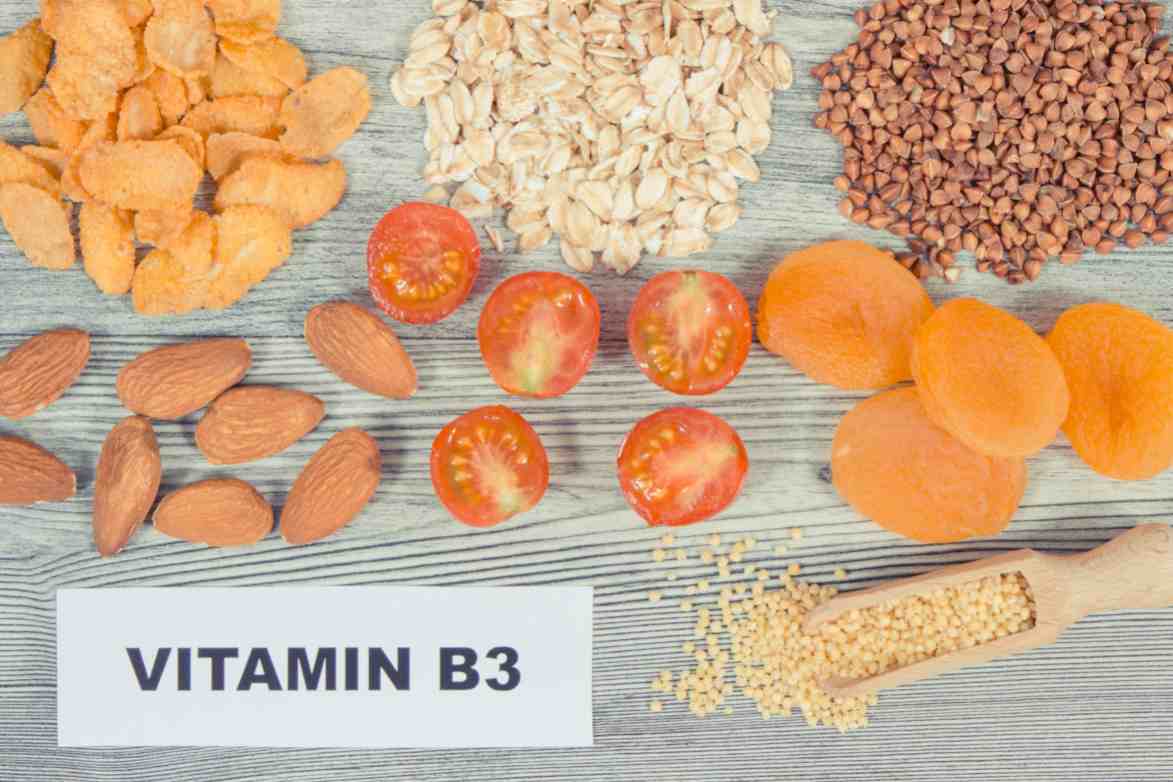
Vitamins are an essential dietary component that helps the body fight against diseases. One must consider consuming several types of vitamins to have a balanced diet. Most of them are derived from consuming vitamin-rich foods, and your body produces some of them.
Similarly, the vitamin B complex is a necessary constituent that helps your body function properly. Vitamin B complex comprises 8 vitamins – B1, B2, B3, B5, B6, B7, B9, and B12. In this article, we will discuss vitamin B3 and the foods that contain vitamin B3.
Therefore, without any delay, let’s learn about vitamin B3 foods!

Table of Contents

What is Vitamin B3?
Vitamin B3 or Niacin is a micronutrient that helps in proper metabolism, nervous system functions and antioxidant protection. This essential component must be included in your diet, as your body cannot produce it. Further, B3 is a water-soluble vitamin excreted through urine and must be replaced regularly. Therefore, consuming vitamin B3 rich foods is vital.
If you are wondering which food vitamin B3 is found, refer to the following sections.
Sources of Vitamin B3
Nicotinic acid and nicotinamide are the two niacin types most frequently found in food and supplements. The body can also convert the amino acid tryptophan into nicotinamide. Because niacin is soluble in water, the body excretes unnecessary excess levels in the urine. Niacin is present in numerous plant and animal-based diets, making a deficiency uncommon.
Top 34 Food Items Rich in Vitamin B3
Niacin consists of two chemical components—nicotinic acid and niacinamide—found in foods and supplements. Like other vitamin B types, B3 also helps convert the food you consume into energy. Therefore, a deficiency of this vitamin results in symptoms like tiredness, fatigue, etc.
List of Animal Protein and Seafood Rich in Vitamin B3
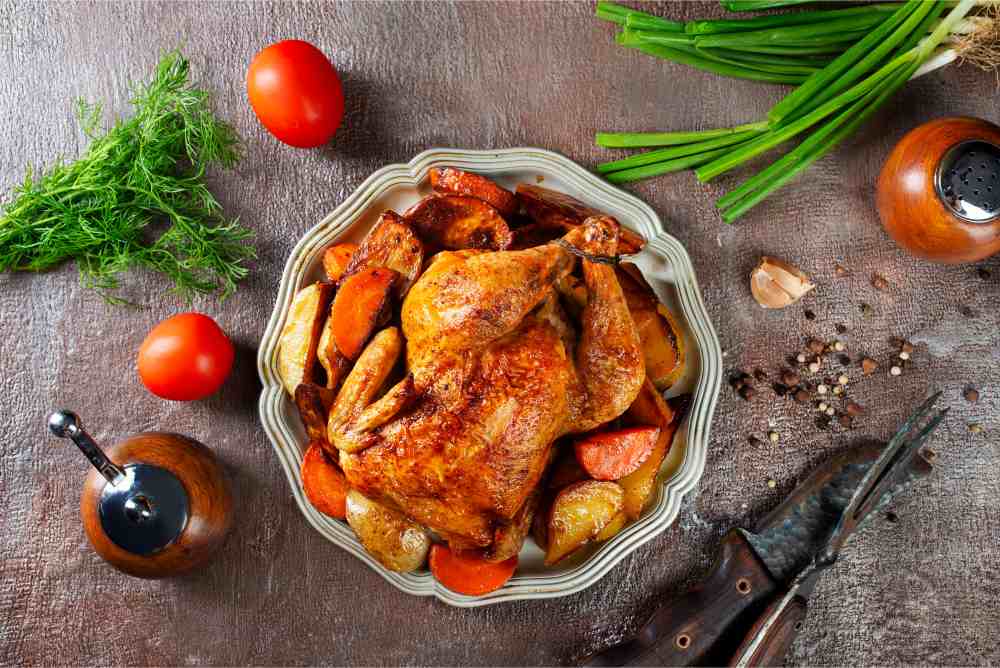
To avoid any deficiency diseases, you must refer to the vitamin B3 foods list given below:
SNo. |
Vitamin B3 Foods | Description |
| 1 | Beef Liver | This is one of the best vitamin B3 food sources, which one must include in their daily diet. Generally, 85 gm of cooked beef liver contains 14.7 mg of B3 or niacin. Another food that is rich in vitamin B3 is chicken liver. Apart from being a vitamin B3 rich food, these items also contain an appreciable amount of other nutrients like iron, vitamin A, protein, choline and other B vitamins. |
| 2 | Chicken | The breast of chicken is high in niacin and lean protein. Comparing the vitamin B3 content in the cooked, boneless, skinless breast part with the thighs, you will find that 85 gm contains 11.4 mg of niacin, whereas the latter contains only half. You must consume chicken liver daily if you are looking for a low-calorie, high-protein diet. |
| 3 | Tuna | Individuals who do not prefer eating meat must include vitamin B3 foods in their diet by consuming tuna fish. 165 gm of light tuna contains 21.9 mg of niacin. It is also an excellent source of protein, omega-3 fatty acids, selenium, vitamin B6 and B12. However, consuming canned tuna raises concerns about mercury toxicity as this metal accumulates in the meat. Therefore, ingesting one can per week is considered safe. |
| 4 | Turkey | Although this food item contains less niacin than chicken, it provides tryptophan. Tryptophan is an amino acid that your body can convert into vitamin B3. Therefore, 85 gm of cooked turkey breast contains 6.3 mg of niacin and enough tryptophan to produce up to 1 mg of niacin. Furthermore, tryptophan also produces the neurotransmitter serotonin and the hormone melatonin, directly impacting mood and sleep. |
| 5 | Salmon | Wild-caught salmon is one of the reliable vitamin B3 sources. 85 gm of cooked fillet of wild Atlantic salmon provides 53% and 61% of the recommended dietary allowances for men and women, respectively. Similarly, the farmed Atlantic salmon contains less niacin. Besides being a rich source of vitamin B3, this food item is also a good source of omega-3 fatty acids that reduce the risk of heart diseases and autoimmune disorders and protect against inflammation. |
| 6 | Anchovies | These are small fishes containing a high amount of niacin. Consuming a single anchovy covers 5% of the RDA for men and women. Therefore, a pack of 10 anchovies will make up for half the niacin you need daily. Additionally, anchovies are rich in selenium, which is associated with reducing the risk of cancers. |
| 7 | Pork | Pork tenderloins or lean pork chops are vitamin B3 foods as they contain a high amount of niacin. Therefore, 85 gm of roasted pork tenderloin packs in 6.3 mg of niacin. The amount is less in the case of fattier cuts. In addition, pork meat is also rich in thiamine or vitamin B1. |
| 8 | Ground Beef | Ground beef is an excellent source of niacin along with other constituents like iron, selenium, vitamin B12, zinc and protein. Leaner varieties contain more B3 than fattier ones. For instance, 85 gm of cooked 95% lean ground beef gives 6.2 mg of niacin, whereas the same amount of 70% lean ground beef packs just 4.1 mg. Moreover, researchers say grass-fed beef offers an appreciable amount of omega-3 fatty acids compared to grain-fed ones. |
However, the aforementioned food items are specifically for non-vegetarians. If you are a vegetarian and wondering which vegetables have vitamin B3, the following section will provide the necessary details.
List of Vegetables Rich in Vitamin D3
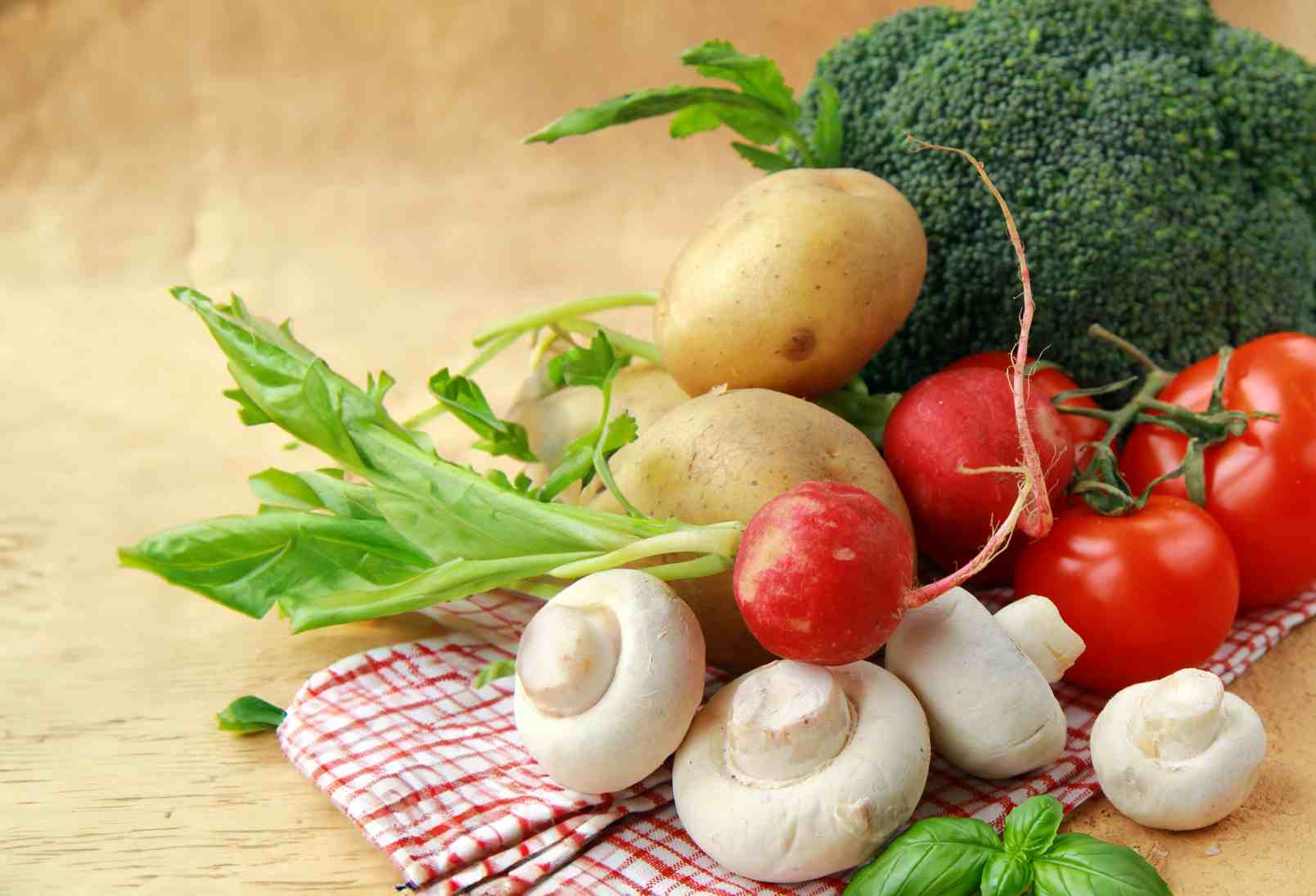
Include these vegetables in your daily diet to increase vitamin B3 content in your body. Here is a list of some vitamin B3 rich vegetables:
SNo. |
Vegetables | Description |
| 9 | Mushrooms | This is an excellent vegetable source of niacin. Therefore, vegetarians or vegans looking for natural sources of vitamin B3 can consider eating mushrooms. A cup of mushrooms contains 2.5 mg of niacin. Furthermore, mushrooms grown under sunlamps produce vitamin D, an essential nutrient for your body. |
| 10 | Green Peas | Green peas are considered vitamin B3 foods due to their high content of absorbable niacin. For instance, 145 gm of green peas contain 20% of niacin RDA for both men and women. This food item is also rich in fibre, antioxidants, and other compounds that reduce the risk of cancer, lower cholesterol levels in the body, and promote the growth of healthy gut bacteria. |
| 11 | Potatoes | Another vegetable source of niacin is potatoes. White potatoes, with or without skin, are an excellent source of vitamin B3. A large baked potato serves 4.2 mg of niacin, and sweet potatoes also provide the same amount. |
| 12 | Broccoli | Half a cup of boiled, drained, and chopped broccoli provides 3% of niacin’s daily value. Broccoli is a good source of vitamin B3 for vegetarians. It also contains vitamins A and K, along with minerals like potassium and manganese. |
| 13 | Cherry Tomatoes | Cherry tomatoes are another natural source of niacin. Half a cup of cherry tomatoes serves 3% of vitamin B3’s daily value. Furthermore, they are a rich source of vitamins C, A, and K. |
Furthermore, you should also know about several vitamin B3 fruits.
List of Fruits Rich in Vitamin B3
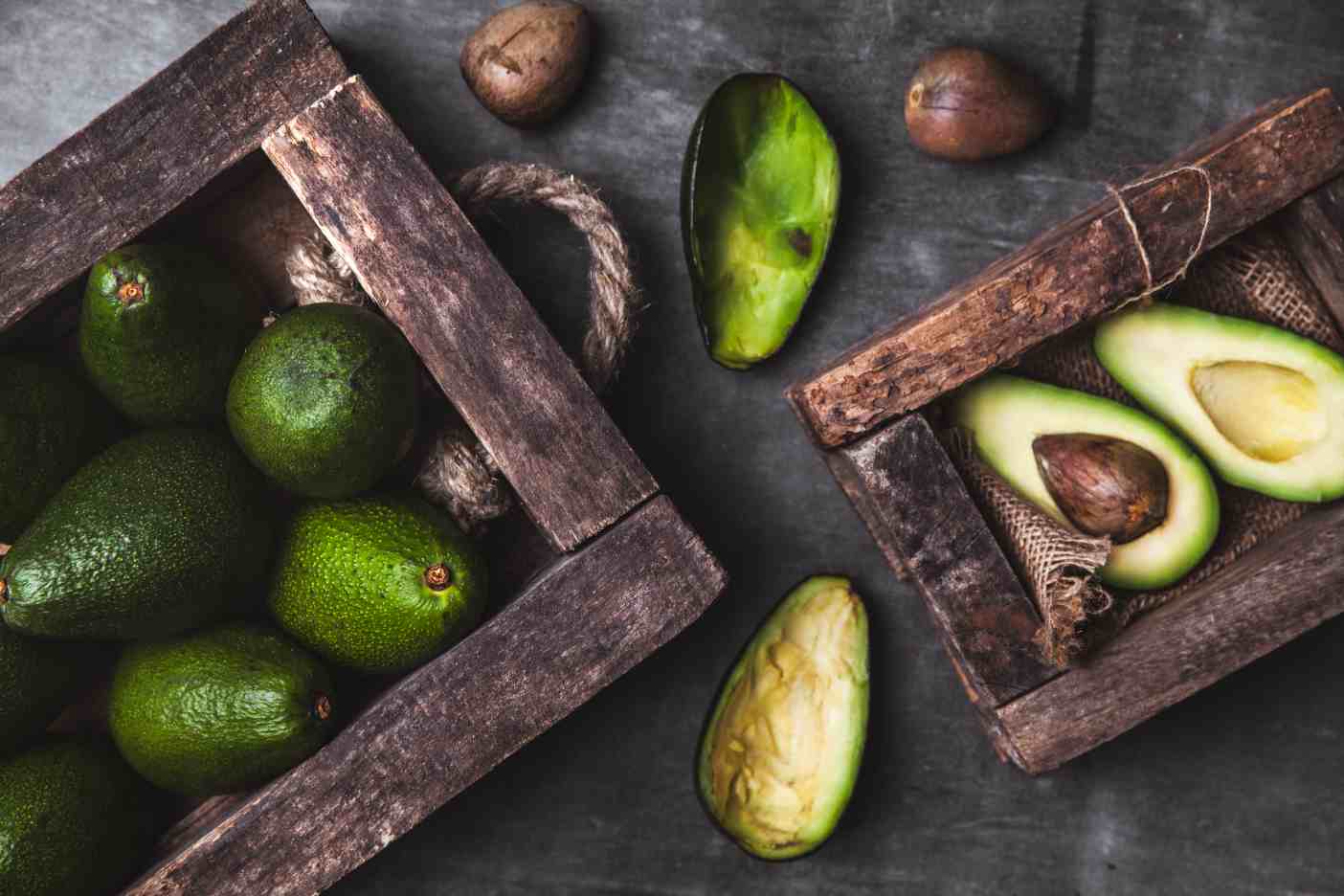
These delicious fruits have an excellent taste and are packed with vitamin B3. Given below are some fruits that contain vitamin B3:
SNo. |
Fruits | Description |
| 14 | Avocados | Health-conscious individuals usually consume avocados. If you wonder which fruits have vitamin B3, you must know that a medium-sized avocado contains 3.5 mg of niacin. They are also fibre-rich, healthy fats, and other vitamins and minerals. |
| 15 | Bananas | This is one of the vitamin B3 fruits in India, covering 5% of niacin’s DV. Apart from this, bananas contain potassium and magnesium. |
| 16 | Mangoes | If you wonder which fruit has the most vitamin B3, consider including mangoes in your daily diet. Mangoes supply 7% of vitamin B3’s DV. Moreover, this fruit is also a rich source of vitamins C and A. |
Therefore, you should consume these vitamin B3 fruits and vegetables daily to avoid deficiency diseases.
List of Seeds and Nuts Rich in Vitamin B3
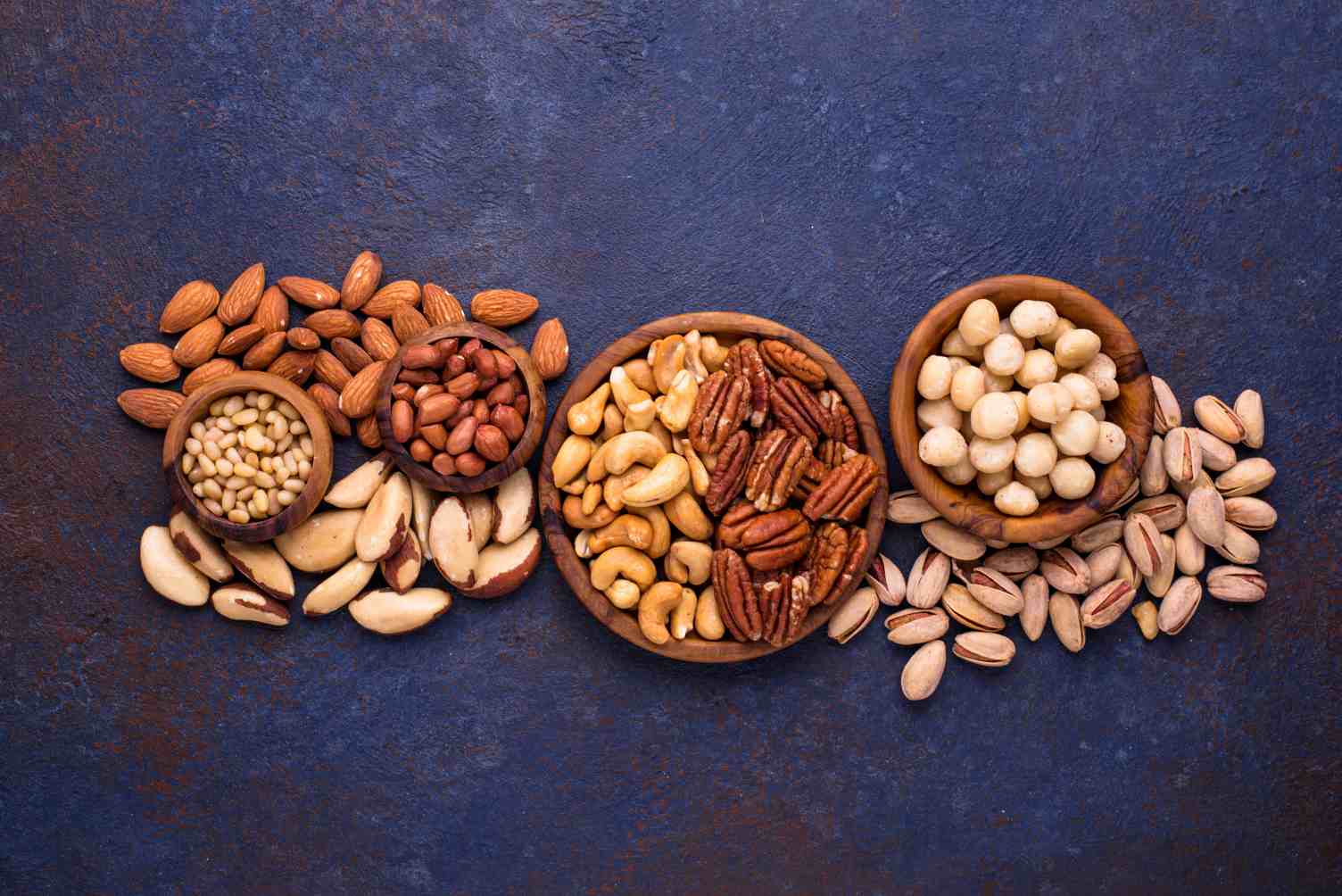
Snack on these amazing nuts and seeds daily to increase your vitamin B3 levels and keep fit.
SNo. |
Nuts and Seeds | Description |
| 17 | Peanuts (Dry Roasted) | 100 gm of dry roasted peanuts give 14.4 mg (90% DV) niacin. Peanuts provide protein, vitamins, minerals, and antioxidants. They may have other health benefits, including promoting fullness and helping protect against heart disease. |
| 18 | Pine nuts | Pine nuts give 4.39 mg of niacin. It can increase your energy levels due to their protein, iron, and magnesium. The antioxidant power of vitamin E in them may help keep your skin healthy and youthful. |
| 19 | Almonds | Apart from having 3.62 mg of niacin, almonds also contain a good source of copper, vitamin B12, and phosphorus, providing 161 calories and 2.5 grams of digestive carbohydrates. |
| 20 | Macadamia nuts | Macadamia nuts are high in healthy fats and may help those trying to lose weight. It has 2.47 mg of niacin also. Macadamia nuts may have various health benefits, containing dietary fiber, protein, and other nutrients. |
| 21 | Dry roasted hazelnuts | In addition to having 2.05 mg of nacin and omega-3 content, hazelnuts are also packed with antioxidants that protect the body from oxidative stress that can contribute to hypertension |
| 22 | Pistachio nuts | Pistachios may be good for health as they are a protein, antioxidants, and fibre source. They also provide 1.3 mg of niacin. Possible benefits include boosting heart health, managing blood sugar, and reducing colon cancer risk. |
| 23 | Pecans | Pecans contain 1.17 mg of niacin and omega-3 fats, which can help ease arthritis pain by reducing inflammation. The magnesium, calcium, fiber, vitamin E, and zinc in pecans also give the nuts anti-inflammatory properties. |
| 24 | Walnuts | Walnuts give 1.13 mg of niacin. They are a great source of alpha-linolenic acid (ALA), an omega-3 fatty acid important for reducing inflammation. It is the only nut significantly high in these omega-3 fatty acids. Their anti-inflammatory compounds may reduce the risk of heart disease. |
| 25 | Chestnuts | In addition to having 1.1 mg of niacin, chestnuts are a decent source of several other vitamins and minerals, including vitamins K, and B5, as well as phosphorus and magnesium |
| 26 | Cashew nuts | Find 1.06 mg of niacin in cashews and a significant amount of copper, a mineral essential for energy production, healthy brain development, and a robust immune system. They’re also a great source of magnesium and manganese, nutrients essential for bone health. |
| 27 | Butternuts | Butternut squash contains considerable fibre, which can help you keep a healthy weight and regulate bowel movements. They additionally have 1.05 mg of niacin. |
| 28 | Beechnuts | Beechnuts have 0.88 mg of niacin. The beech tree nuts or mast are also rich in Vitamins like thiamine, pyridoxine, folate, and pantothenic acids. Besides this, tree nuts are also rich in essential fatty acids. Other important compounds are carotenoids, tocopherols, and oleic-linoleic fatty acids. It is also rich in minerals like calcium and zinc. |
| 29 | Dried coconut meat | With 0.6 mg niacin, coconut meat is the white flesh of coconuts and is edible, fresh, or dried. Rich in fibre and MCTs, it may offer several benefits, including improved heart health, weight loss, and digestion. |
List of Milk and Dairy Products Rich in Vitamin B3

Include milk and other dairy products sometimes into your diet to ensure enough vitamin B3 intake. Follow the list below:
SNo. |
Milk and Dairy Products | Description |
| 30 | Whole Milk | Whole milk contains 0.261 mg of niacin. It is also rich in high-quality protein and an excellent source of vitamins and minerals, such as calcium, vitamin B12, and riboflavin. |
| 31 | Cheddar cheese | Cheddar cheese contains 0.06 mg of niacin. Its high-quality protein aids in muscle maintenance and growth. Cheddar cheese also contains vitamin B12, which helps maintain a healthy metabolism. |
| 32 | Cottage cheese | Cottage cheese is an excellent source of calcium, a mineral that plays a major role in tooth and bone health and in preventing osteoporosis. It additionally provides 0.1 mg niacin with 1% DV. |
| 33 | Buttermilk | It is a good source of protein and calcium, making it a valuable part of buttermilk nutrition. It also contains sodium, potassium, vitamins, phosphorus traces, and 0.09 mg of niacin. |
| 34 | Yoghurt (full fat) | Full-fat yoghurt has 0.2 mg of niacin, providing 1% DV. It also provides protein and calcium, and it may enhance healthy probiotic gut bacteria. |
Further, if you are wondering how to increase vitamin B3 in your diet, consider including fortified products like cereals. Other sources of vitamin B3 include peanuts, whole wheat, and brown rice.
Who Should Take B Complex Vitamins?
Although everyone should include B complex vitamins in their diet, some might need additional supplements. For instance, patients with a high cholesterol condition might need to use prescription niacin or vitamin B3 supplements to manage their health conditions. Furthermore, breastfeeding mothers, pregnant women, and older men require additional sources of the vitamin B complex.
However, before consuming supplements or foods, you must be aware of the daily recommended intake of vitamins.
What is the Daily Recommended Intake for Vitamin B3?
The recommended dietary allowance (RDA) for vitamin B3 is 16 mg daily for men and 14 mg daily for women. Consumption of foods rich in vitamin B3 to its RDA covers 98% of an adult’s needs.
To conclude, it is evident that several vitamin B3 foods are available, all of which can appreciably supply the need for this nutrient in your body.
The table below makes the recommended content more accessible to understand:
Age Group |
Recommended Vitamin B3 Intake (milligrams per day) |
| Birth to 6 months | 2 mg |
| Infants 7-12 months | 4 mg |
| Children 1-3 years | 6 mg |
| Children 4-8 years | 8 mg |
| Children 9-13 years | 12 mg |
| Teens 14-18 years (male) | 16 mg |
| Teens 14-18 years (female) | 14 mg |
| Adult women | 14 mg |
| Pregnant women | 18 mg |
| Adult men | 16 mg |
Health Benefits of Vitamin B3 Rich Foods
Vitamin B3, known as niacin, is essential for overall health and well-being. Here are some of the health benefits associated with consuming foods rich in vitamin B3:
- Supports Energy Production: Vitamin B3 is crucial in converting carbohydrates, fats, and proteins into usable energy for the body. It is a critical component of coenzymes involved in cellular metabolism.
- Promotes Heart Health: Niacin helps lower LDL cholesterol (often referred to as "bad" cholesterol) while increasing HDL cholesterol ("good" cholesterol), which can improve cardiovascular health and reduce the risk of heart disease.
- Supports Brain Function: Adequate levels of niacin are important for proper brain function and cognitive health. It is involved in the synthesis of certain neurotransmitters, which are essential for brain signalling.
- Skin Health: Niacin is beneficial for maintaining healthy skin. It helps improve the skin barrier's function, enhances moisture retention, and can alleviate symptoms of certain skin conditions like acne and eczema.
- May Lower the Risk of Diabetes: Some studies suggest that niacin may improve insulin sensitivity, which can help manage blood sugar levels and reduce the risk of developing type 2 diabetes.
- Anti-inflammatory Properties: Niacin has mild anti-inflammatory effects, which can be beneficial in reducing inflammation in the body, particularly in conditions like arthritis.
- Supports Digestive Health: Vitamin B3 is vital for maintaining a healthy digestive system. It aids in synthesising digestive enzymes that facilitate the breakdown of carbohydrates, fats, and proteins.
- May Improve Joint Mobility: Niacinamide, a form of vitamin B3, has been studied for its potential benefits in improving joint mobility and reducing osteoarthritis-related inflammation.
Different Ways to Include Vitamin B3 Rich Foods
By diversifying your diet with these vitamin B3-rich foods, you can support various bodily functions and promote overall health and vitality. Here are various ways to include vitamin B3-rich foods in your diet:
Symptoms of Vitamin B3 Deficiency
Vitamin B3, also known as niacin, is crucial for various bodily functions, and its deficiency can lead to several symptoms:
- Skin Issues: A typical early sign is dermatitis, which is dry, itchy, scaly skin, especially in areas exposed to sunlight or friction.
- Digestive Problems: Deficiency can cause nausea, vomiting, and diarrhoea due to its role in maintaining digestive tract health.
- Mental Symptoms: Neurological disturbances like headache, confusion, and memory loss may occur, often progressing to more severe symptoms if deficiency persists.
- Mouth Sores: Painful sores or ulcers in the mouth and tongue can develop, affecting the ability to eat and drink comfortably.
- Fatigue and Weakness: Lack of niacin impairs energy production within cells, leading to fatigue, weakness, and a general sense of lethargy.
- Mood Changes: Emotional instability, irritability, and depression may manifest due to niacin's involvement in neurotransmitter synthesis.
What are the Health Risks of Vitamin B3 Deficiency?
Vitamin B3, known as niacin, is crucial in the body's cellular metabolism and energy production. A deficiency in vitamin B3 can lead to several health risks:
Skin changes like Pellagra typically involve a symmetrical rash in sun-exposed areas.
Niacin deficiency can cause digestive disturbances such as diarrhoea and inflamed mucous membranes.
In advanced cases, deficiency may lead to neurological symptoms such as headache, fatigue, irritability, poor concentration, and memory loss.
Severe deficiency can contribute to psychiatric symptoms like depression, anxiety, and hallucinations.
Niacin deficiency may lead to increased levels of LDL cholesterol (the "bad" cholesterol) and triglycerides and decreased levels of HDL cholesterol (the "good" cholesterol), thereby increasing cardiovascular risk.
Insufficient niacin can hinder average growth and development in children.
Side Effects of Excessive Vitamin B3
Excessive intake of vitamin B3, also known as niacin, can lead to several side effects, particularly when taken in high doses beyond the recommended dietary allowances. Here are some potential side effects of excessive vitamin B3 intake:
- Flushing: One of the most common side effects of high-dose niacin supplementation is flushing, characterised by a sudden sensation of warmth, redness, itching, and tingling in the skin. This occurs because niacin causes blood vessels to dilate.
- Liver Toxicity: Very high doses of niacin, especially from supplements, can potentially cause liver damage or dysfunction. This risk is more significant with sustained-release niacin formulations.
- Gastrointestinal Issues: Excessive niacin intake may lead to stomach upset, nausea, vomiting, and diarrhoea.
- Increased Blood Sugar Levels: High doses of niacin can elevate blood glucose levels, which may be problematic for individuals with diabetes or insulin resistance.
- Skin Reactions: In some cases, excessive niacin can cause skin rashes, dry skin, or even exacerbate existing skin conditions.
- Headaches: Some individuals may experience headaches or migraines due to high-dose niacin supplementation.
- Vision Problems: There have been reports of blurred vision or changes in vision associated with very high doses of niacin, although these are less common.
Should You Take Vitamin B3 Supplement?
Many foods, including vegetables, meat, chicken, fish, and eggs, naturally contain niacin, but at levels much lower than those that have been demonstrated to affect cholesterol levels. A nutritious diet may provide most people with the niacin they require.
If your doctor prescribes niacin, you may wish to take it with food. This may help avoid stomach distress. Given the variety of applications for niacin, consult your physician to determine the appropriate dosage.
Obtaining niacin from dietary sources such as meat, fish, poultry, nuts, and whole grains is generally safer than relying solely on supplements unless specifically advised by a healthcare provider. If you are considering niacin supplementation, it's crucial to consult with a healthcare professional to determine the appropriate dose and monitor for potential side effects.
One of the eight water-soluble B vitamins, niacin or vitamin B3, is an essential nutrient that helps in DNA repair, proper metabolism, and nervous system functions. It also acts as an antioxidant. Being water-soluble, it is hard to store this vitamin in your body. Therefore, you must include vitamin B3 foods in your diet.
Several food items are rich in niacin, so it's convenient to include some in your diet. Vitamin B3 is present in both meat and vegetables, so both non-vegetarians and vegetarians can consume foods rich in vitamin B3.
Apart from this, some fortified food items, like cereal, are also good sources of niacin. Therefore, including foods containing vitamin B in breakfast becomes easier, as breakfast cereals are fortified with niacin.
Moreover, some individuals require more vitamin B3 than others. For them, niacin supplements must be an essential dietary component. However, following a diet with vitamin B3 as the recommended dietary allowance helps combat deficiency diseases.













